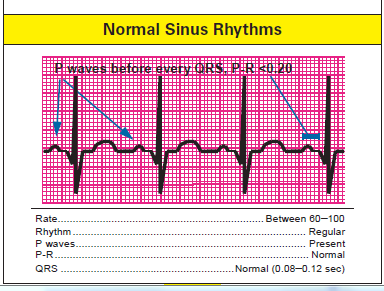ECG Heart Scan, Heart Scan Port Moresby

ELECTROCARDIOGRAPHY-HEART TEST
Question 1. What is an Electrocardiogram (ECG or EKG)?
An electrocardiogram (ECG or EKG) is a recording of the electrical signal/activity generated within the heart. Each beat of the heart is started by an electrical impulse from special cells in the right upper chamber of the heart. From there, the electrical impulse travels to other parts of the heart and causes the heart to squeeze and pump blood. The electrical signals can be detected on the body surface using electrodes placed on chest and limbs. The ECG records these electrical signals. With the ECG your healthcare provider can study the pattern of the signals. Many different diseases and conditions affect the ECG recording and give pattern suggestive of a particular problem in the heart.
Question 2. When is ECG used?
The ECG is used to record heart rhythms. Your healthcare provider can diagnose heart problems by interpreting patterns of heartbeats and rhythms. An ECG strip can show:
Abnormal heartbeats and rhythms (arrhythmia)
Thickening of the heart muscle caused by high blood pressure or other diseases (hypertrophic cardiomyopathy)
Evidence of a current heart attack and the effects of old heart attacks (Acute Myocardial Infarct)
Parts of the heart that are not getting enough blood (Ischemia)
Evidence of chemical imbalances in the body
Fluid or inflammation around the heart (Pericardial effusion/pericarditis)
Question 3. When is ECG test required?
If you or your doctor suspects that you have a heart disease you should have ECG done. You will definitely need ECG if you have the following complaints:
Sudden central chest pain and suspect a heart problem
Breathlessness for no apparent reason
Both leg swollen
Family history of heart disease
Hypertension and kidney
Diabetes
Chronic lung disease
Recurrent lung infection
Weight problems
Anxiety & Panic disorder
Palpitations or racing heart beat
Dizzy spells
History of alcohol or drug abuse
Question 4. How do I prepare for an electrocardiogram?
No preparation is necessary except sometimes you may be required to shave your air around your chest or limbs for easy placing of electrode pads. Your healthcare provider may give you other special instructions if required.
Question 5. How is ECG done?
A resting ECG is a painless procedure that takes less than 20 minutes. It can be done in your healthcare provider's office, clinic, or hospital. You will be requested to strip to the waist so that electrodes can be attached to your chest and limbs. Women should consider wearing a separate top to their trousers or skirt to allow easy access to the chest. If necessary, a selected area of 3-4cm diameter with lots of hair will be shaved to attach the electrodes. Special sensors called electrodes are attached to the chest, arms and legs with either suction cups or sticky gel. These electrodes detect the electrical currents generated by the heart and the impulses are measured and recorded by the electrocardiogram machine. The recording is printed on Paper for your healthcare provider to interpret. The ECG gives your healthcare provider 12 views of your heart's electrical activity.
Question 6. How does ECG assist your diagnosis?
The ECG is a simple, inexpensive, easily performed test that gives a lot of information to your healthcare provider about the way your heart is working. It can speed up the diagnosis of a heart attack so treatment can be started quickly. It can tell if the electrical system is working properly or if you may need medicines or devices like a pacemaker to help control your heart rhythm. Problems identified include heart attack, heart rhythm disorders (arrhythmias), enlarged heart, heart failure, pericarditis (infection), and other non-heart related conditions electrolyte abnormalities and lung clots (pulmonary emboli).
Question 7. Are there any risks while doing ECG Test?
The ECG test is a safe procedure with no known major risks. It does not send electric current to the body.


